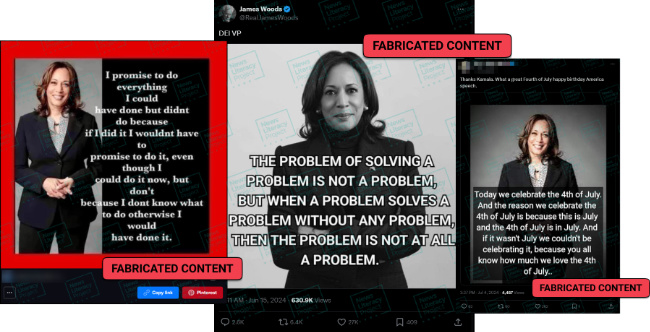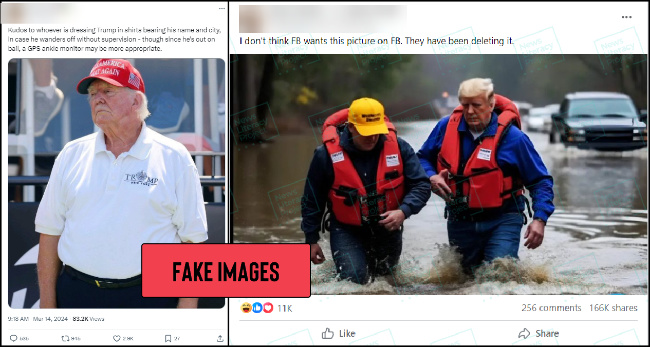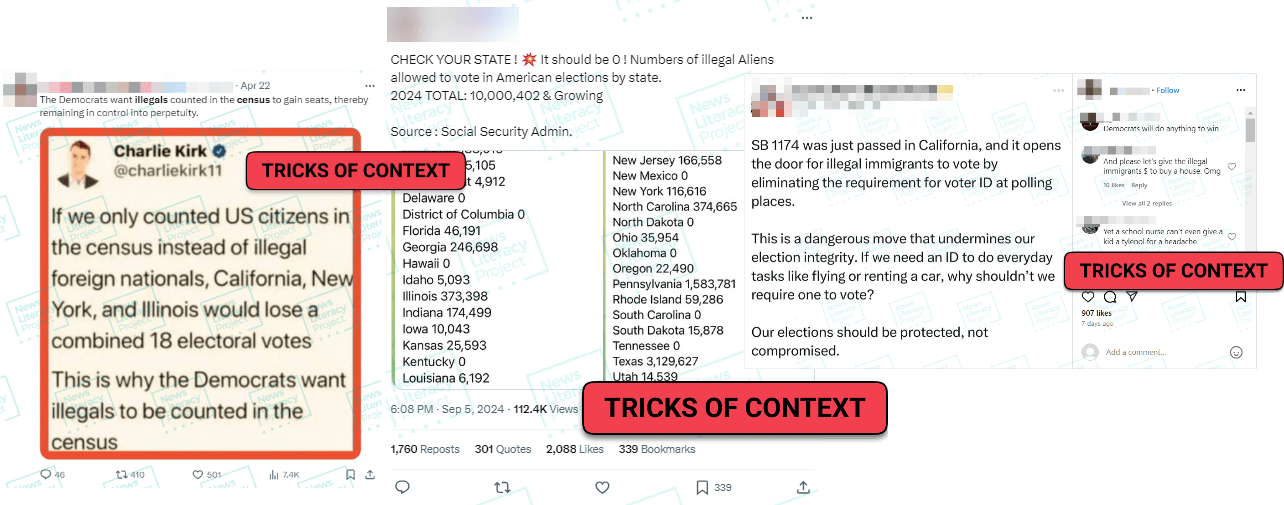Fitness
Track the trends: Candidate fitness and election integrity rank high in rumors

The News Literacy Project is tracking presidential election misinformation trends online. As voting day nears, let’s examine some of them, so we can make sure to cast our ballots based on facts, not falsehoods.
Fitness for the Job
The most common election misinformation narrative is that a candidate is unfit for the job.
False claims targeting Vice President Kamala Harris paint her as unintelligent or intoxicated. These falsehoods spread through a variety of tactics: short segments of her speeches presented out of context; video of her speaking slowed down to make her words sound slurred; voice actors used to create realistic parodies and quotes fabricated out of thin air. All were presented online as genuine. Be on the lookout for similar claims being pushed with these tactics.

Former President Donald Trump’s mental acuity also is a focus of false attacks, and his physical appearance is frequently distorted on social media.


The image on the left circulated widely among Trump’s critics and the one on the right among supporters, but neither accurately depicts Trump. On social media, people can easily get siloed into feeds that provide a politically slanted view — one that feels “right” for the way it resonates with existing personal biases.
NewsLit Tip: NLP’s Misinformation Dashboard: Election 2024 contains numerous misinformation examples that involve distortions related to a candidate’s physical and mental fitness. These falsehoods tend to reinforce preconceived beliefs, so if you have ever thought to yourself, “It might as well be true” after encountering a provocative claim about a candidate, pause for a moment. Reassess your thinking to be sure your opinion of a post is based on accurate information and not your political leaning.
Casting doubt on casting votes
A large portion of the claims in the database target the election itself, with falsehoods attempting to cast doubt about the results. These falsehoods rehashed debunked rumors from 2020, presented standard election procedures out of context, and misconstrued voter registration data. But the most common false narrative in this category is that noncitizens are able to vote.


Noncitizens are not legally allowed to vote in the presidential election and there is no evidence to support these voter fraud claims.
False claims about election fraud are bound to spread in the days leading up and following Election Day on Nov. 5, 2024. Be sure that you are getting your information from reputable standards-based sources. And, if you see a shocking claim from an individual account, make sure to check it against standards-based news reporting.
Interested in learning more about the methodology we use to collect election-related falsehoods? Visit the Misinformation Dashboard and click on “Where we get our data.” You can also contribute: Use this form to submit a false claim that is not yet in the dashboard.








